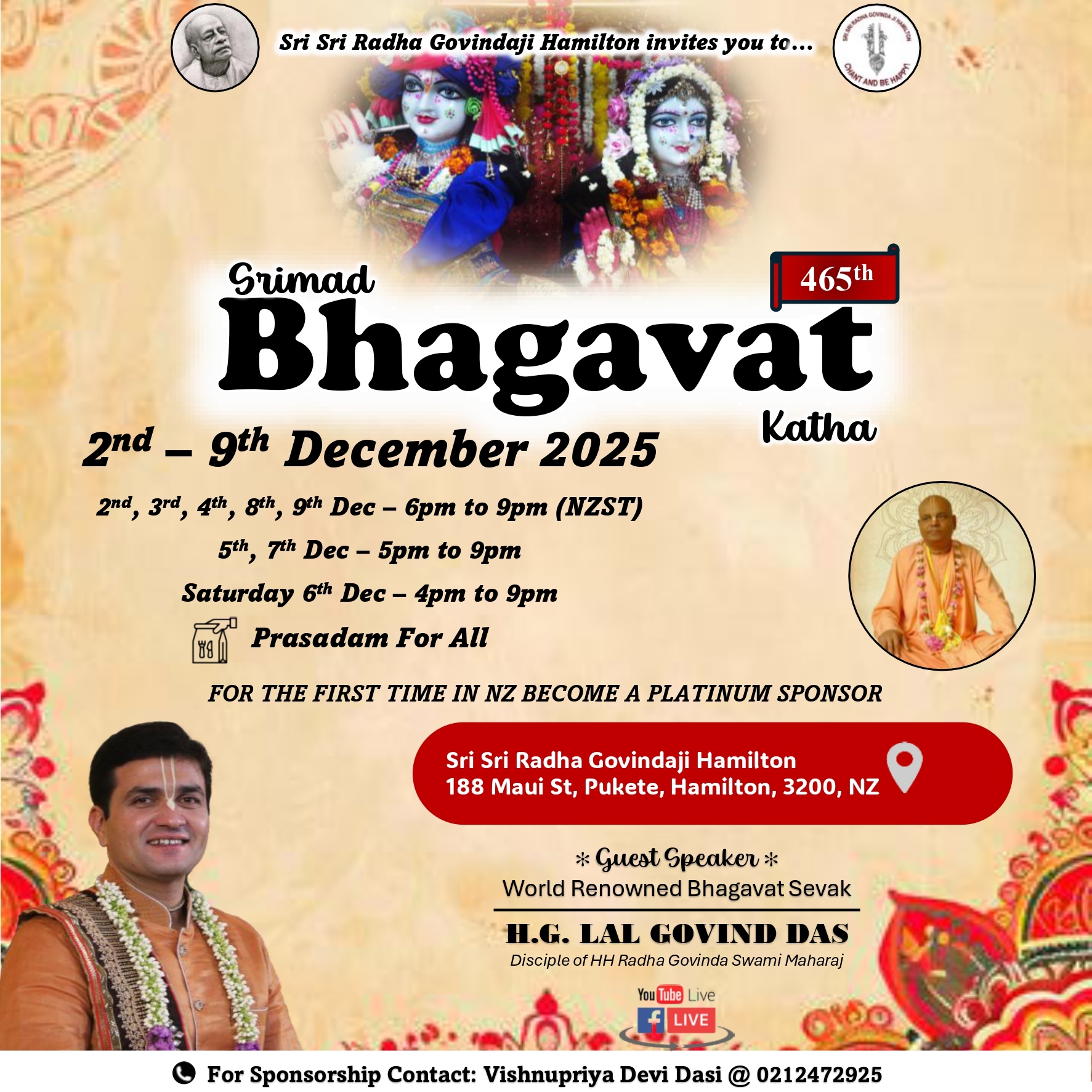Daman’s Case Exposes Colonial Gatekeeping Of Kiwi Identity: Expert

The case over the last week of Daman Kumar, an 18-year-old born and raised in New Zealand whose deportation to India was stopped last minute and eventually granted residency, raises some very fundamental questions for all New Zealanders about what it means to “belong” to this country, and what it means when we say that someone is a "Kiwi”.
For the last week I’ve argued in media interviews that Daman Kumar is a “Kiwi kid”, and his case ought to have been considered in a way quite different from that of traditional overstayers who arrive here on a valid visa only to breach their visa conditions and fail to return home.
As I write this, I look forward with anticipation like all Kiwis to Rachin Ravindra taking on competition in the Champions Trophy.
Why is Rachin considered a Kiwi but Daman not? Both were born in New Zealand, both were raised here, educated here, made all of their lifetime friends here and have their family settled here. Both were born to Indian parents yet one is hailed as a Kiwi hero and the other had to fight off deportation.The answer to the differences in treatment are to be found in an amendment to New Zealand’s Citizenship laws in 2006, but to accept that this is a significant difference is to then accept that the New Zealand Parliament has the sole right to determine our sense of ‘belonging’ to Aotearoa/New Zealand. As a fifth generation Kiwi, I know what that sense of belonging means; it’s that feeling I get when I fly home from overseas and see the long white cloud, over the green forests, the mountains rising up from the Tasman Sea, the native forests, and the knowledge that it is from this land that I was born and to which one day I will eventually return.
Many Indian migrants know that feeling when they return to their country of birth; be it the plains of Punjab, the Himalayas in the distance, the vibrancy of life in bustling Mumbai. Daman Kumar feels that about his place of birth; New Zealand, yet he’s not considered a Kiwi. Why?
The same citizenship laws that enable our government to decide where one ‘belongs’ also enabled the New Zealand High Commissioner to the United Kingdom this week to post on his Facebook page congratulations to an English brother and sister, of a similar age to Daman Kumar, for becoming New Zealand citizens; a pair who said in the ceremony that they were “keen” to come to New Zealand one day; travelling on their brand new Kiwi passports.
The same citizenship laws that initially denied Daman Kumar the ability to stay in the only home he has ever known, issues citizenship and New Zealand passports to English siblings who are “keen” to come to New Zealand one day.
Maori describe that sense of belonging to a place where they feel grounded and connected to the land as Turangawaewae. Everyone has a Turangawaewae, and for Daman Kumar it’s the land, water, air and mountains that surround the place where he was born and raised; Auckland/Tamaki-Makarau is his Turangawaewae. Can we say the same about the English couple handed citizenship certificates and New Zealand passports?
So, our immigration and citizenship laws do not recognise that sense of ‘belonging’, instead it transposes a colonial era concept of determining who belongs and who doesn’t, with that then being imposed on us by faceless government officials. The young English siblings are determined by these officials to belong here, but Daman Kumar doesn’t.
The mainstream news media perpetuates this concept. Have you ever noticed that when the media talks about white migrants from Europe, North America or white South Africans that they are referred to as “ex-pats”, while those with darker skin are always “migrants”. In fact, even those born here to Indian parents are still asked “so where do you come from?” whilst those English migrants are never asked this question; their white skin acts as a signal to others that they automatically “belong” because of the colonial white privilege that they carry in their genes.
As the British Raj controlled India for hundreds of years through divide and rule, I would suggest that the same colonial concepts still exist in 2025 New Zealand. Since last week ordinary Kiwis have been outraged by this government’s treatment of Daman Kumar. Thousands of messages were received all saying the same thing; Daman is a “Kiwi”, he is one of us, he “belongs’ here. Yet, the voices from the Indian community in New Zealand have been mostly mute with of course some honourable exceptions from across the political spectrum (NZ Indian Business Association, Supreme Sikh Society, Migrant Workers Association for example).
The outraged Pakeha and Maori Kiwis understand the significance of that feeling to ‘belonging’ that perhaps many Indian migrants don’t, but I would argue that their reluctance to stand up and speak for the life and future of an innocent victim in their ethnic community is also a hangover from the British colonial divide and rule mentality.
That desire not to upset the government, to not interfere with their ability to take a selfie with an important government minister or to brag to all and sundry about having lunch with the prime minister. Like all good colonial subjects, the priority is to be seen as being an obedient lapdog to their colonial masters, the same masters who hand out New Zealand citizenship to English kids in London but require Indian migrants here to prove themselves on the cricket pitch before they are ever seen as being a ‘real Kiwi’.
The fight for Daman Kumar was not about applying immigration rules, it was a battle for Identity and belonging, and this is a battle that all migrants, whether first, second or third generation, must fight for. Regardless of their skin colour, language or origins; those born and raised here shouldn’t have to prove themselves in the Black Caps to be a ‘Kiwi’, they shouldn’t have to behave like obedient colonial subjects or be a white Englishman to be a ‘Kiwi’.
If this is their home, a place where they are born and have children and spend their old age, then they ’belong’ here regardless of their heritage and regardless of what the colonial era citizenship laws say. With thousands of New Zealanders having Indian ethnicity, the voting block is far too powerful for any government to ignore if only they could only unite with their fellow Kiwis and demand that we all be treated and respected as Kiwis and no longer as obedient colonial subjects.

(The writer, Alastair McClymont, is Daman Kumar's lawyer, at McClymont & Associates, Immigration Specialists. He can be contacted at 096233344)
The case over the last week of Daman Kumar, an 18-year-old born and raised in New Zealand whose deportation to India was stopped last minute and eventually granted residency, raises some very fundamental questions for all New Zealanders about what it means to “belong” to this country, and what it...
The case over the last week of Daman Kumar, an 18-year-old born and raised in New Zealand whose deportation to India was stopped last minute and eventually granted residency, raises some very fundamental questions for all New Zealanders about what it means to “belong” to this country, and what it means when we say that someone is a "Kiwi”.
For the last week I’ve argued in media interviews that Daman Kumar is a “Kiwi kid”, and his case ought to have been considered in a way quite different from that of traditional overstayers who arrive here on a valid visa only to breach their visa conditions and fail to return home.
As I write this, I look forward with anticipation like all Kiwis to Rachin Ravindra taking on competition in the Champions Trophy.
Why is Rachin considered a Kiwi but Daman not? Both were born in New Zealand, both were raised here, educated here, made all of their lifetime friends here and have their family settled here. Both were born to Indian parents yet one is hailed as a Kiwi hero and the other had to fight off deportation.The answer to the differences in treatment are to be found in an amendment to New Zealand’s Citizenship laws in 2006, but to accept that this is a significant difference is to then accept that the New Zealand Parliament has the sole right to determine our sense of ‘belonging’ to Aotearoa/New Zealand. As a fifth generation Kiwi, I know what that sense of belonging means; it’s that feeling I get when I fly home from overseas and see the long white cloud, over the green forests, the mountains rising up from the Tasman Sea, the native forests, and the knowledge that it is from this land that I was born and to which one day I will eventually return.
Many Indian migrants know that feeling when they return to their country of birth; be it the plains of Punjab, the Himalayas in the distance, the vibrancy of life in bustling Mumbai. Daman Kumar feels that about his place of birth; New Zealand, yet he’s not considered a Kiwi. Why?
The same citizenship laws that enable our government to decide where one ‘belongs’ also enabled the New Zealand High Commissioner to the United Kingdom this week to post on his Facebook page congratulations to an English brother and sister, of a similar age to Daman Kumar, for becoming New Zealand citizens; a pair who said in the ceremony that they were “keen” to come to New Zealand one day; travelling on their brand new Kiwi passports.
The same citizenship laws that initially denied Daman Kumar the ability to stay in the only home he has ever known, issues citizenship and New Zealand passports to English siblings who are “keen” to come to New Zealand one day.
Maori describe that sense of belonging to a place where they feel grounded and connected to the land as Turangawaewae. Everyone has a Turangawaewae, and for Daman Kumar it’s the land, water, air and mountains that surround the place where he was born and raised; Auckland/Tamaki-Makarau is his Turangawaewae. Can we say the same about the English couple handed citizenship certificates and New Zealand passports?
So, our immigration and citizenship laws do not recognise that sense of ‘belonging’, instead it transposes a colonial era concept of determining who belongs and who doesn’t, with that then being imposed on us by faceless government officials. The young English siblings are determined by these officials to belong here, but Daman Kumar doesn’t.
The mainstream news media perpetuates this concept. Have you ever noticed that when the media talks about white migrants from Europe, North America or white South Africans that they are referred to as “ex-pats”, while those with darker skin are always “migrants”. In fact, even those born here to Indian parents are still asked “so where do you come from?” whilst those English migrants are never asked this question; their white skin acts as a signal to others that they automatically “belong” because of the colonial white privilege that they carry in their genes.
As the British Raj controlled India for hundreds of years through divide and rule, I would suggest that the same colonial concepts still exist in 2025 New Zealand. Since last week ordinary Kiwis have been outraged by this government’s treatment of Daman Kumar. Thousands of messages were received all saying the same thing; Daman is a “Kiwi”, he is one of us, he “belongs’ here. Yet, the voices from the Indian community in New Zealand have been mostly mute with of course some honourable exceptions from across the political spectrum (NZ Indian Business Association, Supreme Sikh Society, Migrant Workers Association for example).
The outraged Pakeha and Maori Kiwis understand the significance of that feeling to ‘belonging’ that perhaps many Indian migrants don’t, but I would argue that their reluctance to stand up and speak for the life and future of an innocent victim in their ethnic community is also a hangover from the British colonial divide and rule mentality.
That desire not to upset the government, to not interfere with their ability to take a selfie with an important government minister or to brag to all and sundry about having lunch with the prime minister. Like all good colonial subjects, the priority is to be seen as being an obedient lapdog to their colonial masters, the same masters who hand out New Zealand citizenship to English kids in London but require Indian migrants here to prove themselves on the cricket pitch before they are ever seen as being a ‘real Kiwi’.
The fight for Daman Kumar was not about applying immigration rules, it was a battle for Identity and belonging, and this is a battle that all migrants, whether first, second or third generation, must fight for. Regardless of their skin colour, language or origins; those born and raised here shouldn’t have to prove themselves in the Black Caps to be a ‘Kiwi’, they shouldn’t have to behave like obedient colonial subjects or be a white Englishman to be a ‘Kiwi’.
If this is their home, a place where they are born and have children and spend their old age, then they ’belong’ here regardless of their heritage and regardless of what the colonial era citizenship laws say. With thousands of New Zealanders having Indian ethnicity, the voting block is far too powerful for any government to ignore if only they could only unite with their fellow Kiwis and demand that we all be treated and respected as Kiwis and no longer as obedient colonial subjects.

(The writer, Alastair McClymont, is Daman Kumar's lawyer, at McClymont & Associates, Immigration Specialists. He can be contacted at 096233344)










Leave a Comment